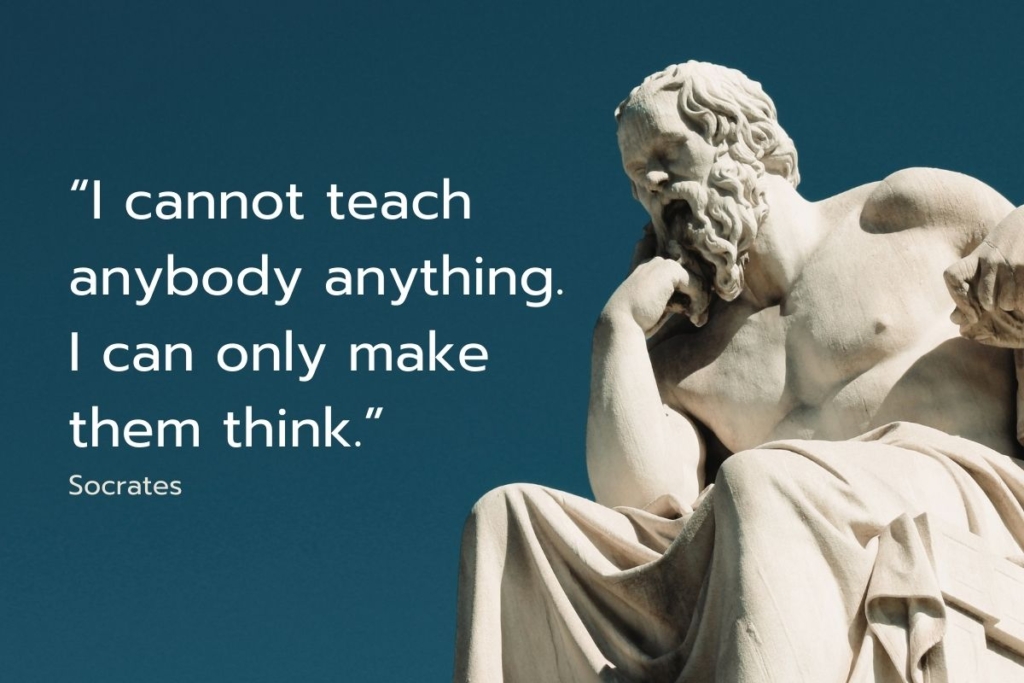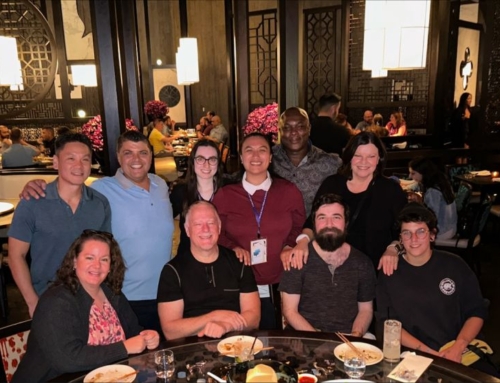I sometimes think hiring a “ready to go” consultant to get started immediately on an important project is a bit like Captain Ahab hunting for Moby Dick; if you actually “catch” a consultant with the right skills, you may end up sorry you did. You’ve found something very powerful, and the allure is understandable given the potential, but highly experienced consultants are used to swimming their own way — and my experience is that more often than not, hiring one will leave you with a broken ship.
So, it never works to hire experienced consultants?
No, it can definitely work. Of the dozen or so hires of highly experienced consultants that I’ve made over the past decade, it has worked out a few times. When it doesn’t, the problem is usually cultural. We have a very strong entrepreneurial culture of excellence that requires initiative and critical thinking. When people have been with organizations that discourage such things, the change can be jarring and, most of the time, insurmountable. We keep trying because the reward for the exceptions is significant, but we can’t build our business this way.
What to do?
In The Untouchables, Sean Connery said, “If you’re afraid of getting a rotten apple, don’t go to the barrel. Get it off the tree.” He was looking for the next “Untouchable”, but his words apply equally to finding a great consultant: it’s often better to find someone who is looking for their first or second job, who hasn’t developed bad habits, and isn’t carrying baggage from bad experiences. At Compass365, this allows us to acclimate people culturally while we build their technical skills. When this works, we get a 20-year employee who is not only compatible with but actually reinforces our company culture.
But we need someone who is ready right now!
I hear this often from my managers and, having been in their shoes, I’m highly sympathetic. My advice to them: hire the person you believe has potential and put in extra hours to cover for them while they work hard to build their skills. This is a burden on my managers so the other thing we try to do is take steps to find new employees in advance of the need. As Microsoft 365 consultants our workload constantly varies based on the success of our salespeople, so this is quite a challenge, but based on our sales pipeline, we try to anticipate the need for new consultants and hire them at least 6 months before they are actually needed. This creates a cost burden for the company, but when we get it right, it allows us to grow effectively while maintaining sanity for our highly valued managers.
We hired an inexperienced consultant with great potential; now what?
First the bad news: at Compass365 and General Networks, it takes an inexperienced consultant at least 6 months to build their skills to a point where they are consistently working. It takes 2-5 years before they’ll be “out on their own” on a project without reasonably close supervision. That’s rough. To be successful, we need to build technical skills, consulting skills, and leadership skills. Yet simultaneously, economic realities require that our new consultant be able to produce value as quickly as possible. In deference to the latter, we first focus on technical skills through a combination of traditional training techniques and boot camping.
Training and boot camping
Many of our software vendors, including Microsoft and Open Text, offer online and classroom training resources. These provide a great way to “jump start” technical skill-building. However, our clients expect our consultants to have a level of skill that simply can’t be achieved with traditional training alone, and that is where boot camping comes in.
Boot camping is a powerful skill-building technique where we create virtual environments that allow our consultants to go hands-on with our core technologies. This means starting with basic planning and installation steps and working all the way through configuration and deployment in a risk-free environment. Combined with guidance from our expert technologists, motivated consultants can “quickly” (it still takes months) attain a level of competence that far exceeds the result of any other approach.
The Socratic method to consulting excellence
As difficult as it is to attain technical mastery in Enterprise Content Management, becoming a great consultant is harder still. The great contradiction is that our consultants can learn to be great, but nobody can teach them how — this can only be achieved through self-realization. Certainly, I can offer techniques and provide tools; I can give rules of thumb and long speeches about taking ownership. Those things are important, but they are useless if you don’t know when to apply them. How does one learn to do that? The first, and somewhat problematic way, is for your consultant to make a mistake that blows up on them. The truth is that there is no surer way to learn than that; making mistakes and learning from them really works. Unfortunately, there’s an obvious problem which is having new consultants make one mistake after another, leading to failures on projects and angry clients. The alternative? Anyone who knows Socrates knows that I am no Socrates, but as that group is reasonably small, I’ll claim to emulate Socrates in at least one way by drawing upon the Socratic method. At its core, that means asking questions.
For example, let’s say that I’m leading a project and the HR department wants Finance to approve a workflow process that we are designing, but Finance thinks it’s a waste of time for them to approve something that HR hasn’t seen yet. This is a good time for me to have a discussion with an inexperienced consultant on my team — a conversation with my hypothetical new consultant, Judy, might go like this:
Todd: “What should we do now?”
Judy: “I’m not sure.”
Todd: “Take a guess – what do you think?”
Judy: “We should schedule a meeting with the Steering Committee to get guidance.”
Todd: “What if the Steering Committee can’t meet with us for three weeks because this is a busy time for many members?”
Judy: “I’m not sure.”
Todd: “Take a guess – what next?”
Judy: “Maybe we need to talk to the HR manager to see if there is some flexibility.”
Todd: “Ok, we meet with him and he says he is not flexible on the issue. Now what?”
Judy: “I’m not sure.”
Todd:
Judy: “Is there a way to allow both approvals to happen at the same time?”
Todd: “Actually, our workflow product provides a collaborative process that integrates with Yammer to provide for simultaneous approval.”
Judy: “Can we use that?”
…
This would be a tiny snippet of the actual conversation, but you get the idea. This approach forces Judy to confront the problem directly and look for answers. As I reject her ideas, it forces her to search for more. The goal is to create an effective consulting thought pattern where problems are analyzed, multiple solutions are identified and scrutinized, and then recommendations can be made. I can “describe” this thought process 100 times, but it won’t sink in until the consultant realizes it for themselves, which is the goal of the Socratic process. The result is the first step toward being a great consultant.
Stretch assignments
Let’s say things are going well and our new consultant has transformed into a journeyman almost ready for the big time! Now what? When there’s a new project starting, we might be unsure if our journeyman is ready to fill a leadership role. Yet, we recognize that this time of uncertainty is crucial; the moment we think a consultant has a reasonable chance to succeed (though not 100%) is exactly the moment to give them that chance. In fact, often our consultants aren’t sure if they’re ready either, so we may have to push them a little bit. The “stretch assignment” is one of the great ways to help our consultants develop leadership skills.
Does it make us nervous? Yes. Does it make them nervous? If it doesn’t, we might be in trouble (overconfidence can be dangerous), but otherwise, it’s full speed ahead. Now, logically, one asks: “Isn’t it risky to have a project lead who has never led before?” Certainly, the answer is yes, but there are ways to mitigate the risk and reasons to take the chance. To reduce risk, we assign an experienced lead to “ride shotgun” with our journeyman, participating in planning and decision-making at a reasonably low level. At Compass365, this role is often played by a Project Architect who was responsible for the overall design of the solution. With a relatively small effort, this can prevent any serious problems with the project. The great thing for the client is that they get someone who is significantly more available than they otherwise might have. When we do this successfully, we find that often our clients want that consultant for every project going forward.
Is all this worth it?
It really is. It takes years, but we end up with a great consultant, with great skills, who fits our culture and will be our partner for a long time. This is not a guess; I work with a lot of people who have followed this exact path and without whom Compass365 and General Networks would not be where we are today.
Subscribe
Join over 5,000 business and IT professionals who receive our monthly newsletter with the latest Microsoft 365 tips, news, and updates.





